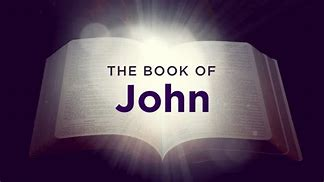I Am the Light of the World - {Interlinear <Greek>}
12 - Again {Πάλιν<palin>} • {οὖν<oun>} Jesus {ὁ Ἰησοῦς<ho Iēsous>} spoke {ἐλάλησεν<laleō>} to → them, {αὐτοῖς<autos>} saying, {λέγων·<legō>} “I {ἐγώ<egō>} am {εἰμι<eimi>} the {τὸ<ho>} light {φῶς<phōs>} of → the {τοῦ<ho>} world. {κόσμου. <kosmos>} Whoever {ὁ<ho>} follows {ἀκολουθῶν<akoloutheō>} me {ἐμοὶ<egō>} will → not {οὐ μὴ<ou mē>} walk {περιπατήσῃ<peripateō>} in {ἐν<en>} darkness, {τῇ<σκοτίᾳ<hoskotia>} but {ἀλλ᾽<alla>} will → have {ἕξει<echō>} the {τὸ<ho>} light {φῶς<phōs>} of → life.” {τῆς ζωῆς.<ho zōē>}
13 - So {οὖν<oun>} the {οἱ<ho>} Pharisees {Φαρισαῖοι·<Pharisaios>} said {Εἶπον <legō>} to → him, {αὐτῷ<autos>} “You {σὺ<sy>} are → bearing → witness {μαρτυρεῖς·<martyreō>} about {περὶ<peri>} yourself; {σεαυτοῦ<seautou>} your {σου <sy>} testimony {ἡ μαρτυρία<ho martyria>} is {ἔστιν<eimi>} not {οὐκ<ou>} true.” {ἀληθής.<alēthēs>}
14 - Jesus {Ἰησοῦς<Iēsous>} answered, {Ἀπεκρίθη<apokrinomai>} • {καὶ<kai>} • {εἶπεν <legō>} • {αὐτοῖς·<autos>} “Even if {κἂν<kan>} I {ἐγὼ<egō>} do → bear → witness {μαρτυρῶ<martyreō>} about {περὶ<peri>} myself, {ἐμαυτοῦ,<emautou>} my {μου, <egō>} testimony {ἡ μαρτυρία<ho martyria>} is {ἐστιν<eimi>} true, {ἀληθής<alēthēs>} for {ὅτι<hoti>} I → know {οἶδα<oida>} where → I → came {ἦλθον<erchomai>} from {πόθεν<pothen>} and {καὶ<kai>} where {ποῦ<pou>} I → am → going, {ὑπάγω· <hypagō>} but {δὲ <de>} you {ὑμεῖς<sy>} do → not {οὐκ<ou>} know {οἴδατε<oida>} where → I → come {ἔρχομαι<erchomai>} from {πόθεν<pothen>} or {ἢ<ē>} where {ποῦ<pou>} I → am → going. {ὑπάγω.<hypagō>}
15 - You {ὑμεῖς<sy>} judge {κρίνετε,<krinō>} according to {κατὰ<kata>} the {τὴν <ho>} flesh; {σάρκα<sarx>} I {ἐγὼ<egō>} judge {κρίνω<krinō>} no one. {οὐ οὐδένα.<ou oudeis>}
16 - Yet {δὲ<de>} even {καὶ<kai>} if {ἐὰν<ean>} I {ἐγώ,<egō>} do → judge, {κρίνω <krinō>} my {ἡ ἐμὴ<ho emos>} judgment {ἡ κρίσις<ho krisis>} is {ἐστιν,<eimi>} true, {ἀληθινή<alēthinos>} for {ὅτι<hoti>} it • is {εἰμί,<eimi>} not {οὐκ<ou>} I ← alone {μόνος<monos>} who • judge, • but {ἀλλ᾽<alla>} I {ἐγὼ<egō>} and {καὶ<kai>} the {ὁ<ho>} Father {πατήρ. <patēr>} who • sent {πέμψας<pempō>} me. {με<egō>}
17 - • {καὶ<kai>} In {ἐν<en>} • {δὲ<de>} your {τῷ ὑμετέρῳ<ho hymeteros>} Law {τῷ νόμῳ <ho nomos>} it → is → written {γέγραπται<graphō>} that {ὅτι<hoti>} the {ἡ <ho>} testimony {μαρτυρία<martyria>} of → two {δύο<dyo>} people {ἀνθρώπων <anthrōpos>} is {ἐστιν.<eimi>} true. {ἀληθής<alēthēs>}
18 - I {ἐγώ<egō>} am {εἰμι<eimi>} the one who {ὁ<ho>} bears → witness {μαρτυρῶν <martyreō>} about {περὶ<peri>} myself, {ἐμαυτοῦ,<emautou>} and {καὶ <kai>} the {ὁ<ho>} Father {πατήρ.<patēr>} who • sent {πέμψας<pempō>} me {με<egō>} bears → witness {μαρτυρεῖ<martyreō>} about {περὶ<peri>} me.” {ἐμοῦ<egō>}
19 - They → said {ἔλεγον<legō>} to → him {αὐτῷ·<autos>} therefore, {οὖν<oun>} “Where {ποῦ<pou>} is {ἐστιν<eimi>} your {σου;<sy>} Father?” {ὁ πατήρ<ho patēr>} Jesus {Ἰησοῦς·<Iēsous>} answered, {Ἀπεκρίθη<apokrinomai>} “You → know {οἴδατε<oida>} neither {οὔτε<oute>} me {ἐμὲ<egō>} nor {οὔτε<oute>} my {μου.<egō>} Father. {τὸν πατέρα<ho patēr>} If {εἰ<ei>} you → knew {ᾔδειτε<oida>} me, {ἐμὲ<egō>} you → would → know {ἂν ᾔδειτε.<anoida>} my {μου<egō>} Father {τὸν πατέρα<hopatēr>} also.” {καὶ<kai>}
20 - These {ταῦτα<houtos>} words {τὰ ῥήματα<ho rhēma>} he → spoke {ἐλάλησεν <laleō>} in {ἐν<en>} the {τῷ<ho>} treasury, {γαζοφυλακίῳ<gazophylakion>} as → he → taught {διδάσκων<didaskō>} in {ἐν<en>} the {τῷ<ho>} temple; {ἱερῷ,<hieron>} but {καὶ<kai>} no one {οὐδεὶς<oudeis>} arrested {ἐπίασεν<piazō>} him, {αὐτόν,<autos>} because {ὅτι<hoti>} his {αὐτοῦ.<autos>} hour {ἡ ὥρα<ho hōra>} had → not yet {οὔπω<oupō>} come. {ἐληλύθει<erchomai>}

In his prologue, John has already identified Jesus as the source of life and the “light of men” (1:4)—the light for which the darkness is no match (1:5). Thus, we should not be surprised that Jesus includes “I am the light of the world” (8:12) among his seven “I am” affirmations. Indeed, Jesus is the incarnation of the “true light” (1:9), alone sufficient to rescue any man, any time, from the darkness of sin and death. He who is affirmed as the Creator of light (1:3) came as the light of redemption. The prophet Isaiah envisioned the work of the Messiah, God’s servant, as the one who would be revealed as a “light for the nations, that my salvation may reach to the end of the earth” (Isa. 49:6).
The sinfulness of sin is seen in the reality that “people loved the darkness rather than the light” (John 3:19). Yet Jesus came to be lifted up on the cross so that we who “believe in the light” might become “sons of light” (12:32–36)—so great is his grace, so great is his gospel. Jesus took the darkness of God’s judgment so that we might now receive the light of God’s salvation.
The Old Testament concludes with the hope of a day in which “the sun of righteousness shall rise with healing in its wings” (Mal. 4:2). As God’s beloved Son, Jesus is that risen sun. He is our healing because he is our righteousness.
In his last chronicled writing, John saw the day in which the Lamb of God, the Lord of lords, would be extolled as the lamp of the eternal city, the new Jerusalem: “The city has no need of sun or moon to shine on it, for the glory of God gives it light, and its lamp is the Lamb” (Rev. 21:23). How we long for that day of perfect love and unfiltered light.
References:
All contents are reposted from ESV.org.
“Scripture quotations are from The ESV® Bible (The Holy Bible, English Standard Version®), copyright © 2001 by Crossway, a publishing ministry of Good News Publishers. Used by permission.
All rights reserved.”
Comments